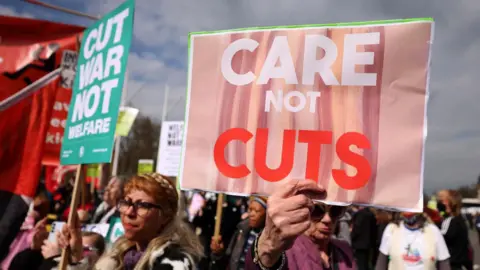The political landscape within the Labour Party has grown increasingly tumultuous as several Members of Parliament (MPs) voice their intent to rebel against the government’s proposed cuts to disability benefits. The recent debates surrounding welfare reform have highlighted significant dissatisfaction amongst party members, particularly following Labour’s loss of 187 council seats in the recent local elections. This context amplifies the urgency for party leadership, prompting discussions about the future direction of welfare policies that directly affect vulnerable populations.
During a spirited discussion in Westminster Hall, a number of Labour MPs openly expressed their disdain for the government’s proposals that aim to make it more challenging for individuals with less severe disabilities to obtain disability payments. Among those raising concerns were notable figures such as Diane Abbott, MP for Hackney North and Stoke Newington, and Ian Byrne, representing Liverpool West Derby. Abbott condemned the government’s actions, asserting that it is “making a conscious choice to balance its books on the backs of people on welfare.”
The government under Disability Minister Sir Stephen Timms has defended these proposed changes, emphasizing the need for reforms to ensure that the welfare system is “financially sustainable in the long term.” These drastic changes come on the heels of a broader reform initiative announced in March, which aims to streamline the welfare system and potentially save £5 billion annually by the year 2030. The focus has been placed on motivating individuals who are able to work to engage with the job market, a sentiment echoed by Timms during his presentation of the proposals, which encompass adjustments to the Personal Independence Payment (PIP) and Universal Credit (UC).
However, the ramifications of these reforms are stark, with government projections indicating that 3.2 million families may find themselves in a less secure financial position as a consequence. In contrast, an estimated 3.8 million families could benefit from the adjustments made by 2030. These statistics have ignited critical discussions regarding the potential inequities generated by the proposed welfare cuts.
As voices of dissent within the Labour Party grow more pronounced, several MPs, including Richard Burgon, Rachael Maskell, and Nadia Whittome, have pledged their opposition to the projected reforms. Furthermore, John McDonnell, an independent MP for Hayes and Harlington, who previously faced sanctions from Labour for rebelling over the child benefit cap, has aligned with those committed to resisting the cuts. Their collective voices signal a notable fracture within the party, which could have substantial implications for upcoming legislative deliberations.
Meanwhile, Prime Minister Sir Keir Starmer is facing heightened scrutiny as he defends controversial policies, such as the elimination of winter fuel payments for millions of pensioners—a decision that has sparked its own backlash within Labour. A notable cohort of approximately 45 Labour MPs has urged the government to reassess this particular move, signaling an undercurrent of unrest that could reverberate through future policy decisions.
The potential for a major legislative battle is imminent, with discussions surrounding welfare reform expected to reach the House of Commons in June. While the government presently enjoys a majority, the emergence of significant dissent within Labour could reveal the depth of the concerns held by its members regarding welfare policies.
The discourse around these welfare cuts is indicative of broader political tensions within the Labour Party. Senior ministers, including Pat McFadden, have called for unity and forward-thinking strategies in light of recent party setbacks, underscoring the urgency for Labour to reestablish itself as a relevant political force in a changing societal landscape. As the debates continue, it remains to be seen how these internal divisions will shape the party’s policies and electoral prospects in the future.



